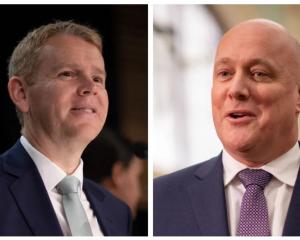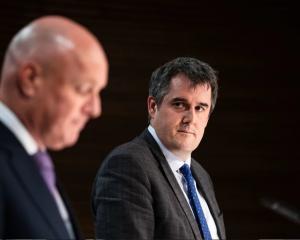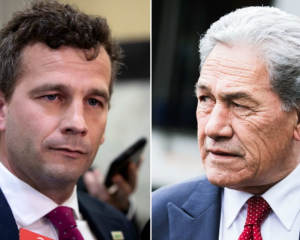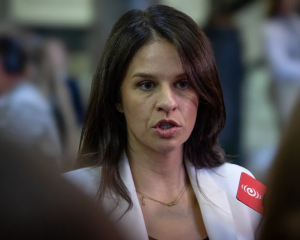Wellington got a $2 billion highway and some tunnels, for which Transport Minister Steven Joyce has been duly thanked.
After about a decade of waiting there's some scepticism about when it will actually happen but the money is there, which is a big advance on any previous attempts to get it going.
And Treasury's fiscal update delivered a slightly better economic outlook for the next few years. The Government will maybe have to borrow about $240 million a week instead of $250 million to keep the show on the road.
This was played down by Finance Minister Bill English, who keeps insisting recovery is fragile and he faces big challenges.
Labour says he doesn't want public expectations to lift ahead of the horrible budget he's going to start writing in the new year. They're probably right.
The Government's problem is that people might go into their summer break thinking the recession is over, when it isn't. The worst of it is, but the impact on unemployment is still there and it's going to be felt for some time yet.
But there's general agreement 2010 isn't going to be as bad as this year has been, and familiar opposition demands for the pursestrings to be loosened have already started.
Calling for gains to be shared is populist nonsense. Having to perhaps borrow less doesn't mean there's money in the bank.
Families know this and so do ministers. Their budget wish lists, if they're brave enough to put them up, will get curt treatment from a finance minister who doesn't have a choice about being tight-fisted.
From a broad political view, next year doesn't look like being significantly different to this year.
John Key isn't running a reformist government, that much is clear after 12 months of National in power.
He is cautious and pragmatic, there's a heavy emphasis on public acceptance of any policy change.
There are no ministers in cabinet running their own agendas, there are no zealots driven by a determination to make drastic changes to the status quo.
Incremental change is the name of the game - exactly the way Simon Power has started fixing the justice system, and Tony Ryall has begun to change health administration by enforcing collaboration between district health boards.
They're doing it without making waves, and Ryall in particular has succeeded in shaking up hospitals in ways that haven't been seriously challenged and look impressive from a public point of view - like making them publish their performance statistics in local papers.
This way of doing things is going to continue, because it works. The Government is more popular than it was on election night, Key's personal ratings are sky high. No administration in its right mind would change course and risk giving that away in a blaze of risky, high stakes moves to satisfy the demands of any single sector.
There won't be any asset sales, not even partial, during the Government's first term. Labour ran the secret agenda line during the campaign, and Key made promises to voters.
He is proud of keeping his word and thinks that's one of the main reasons for his popularity. It's something National learned from Labour.
And if it does decide to sell anything in its second term, Key is likely to insist on putting that into the manifesto for the 2011 campaign.
There is one difficult task for 2010 - repealing the Foreshore and Seabed Act and replacing it with something else. The trick is going to be selling the new legislation in a way that satisfies everyone.
Public access to the beaches guaranteed and Maori rights accepted, but through laws which don't provoke a backlash.
Attorney-General Chris Finlayson will be hailed as a hero if he can pull it off.
There will be strife with teachers over national standards but the Government feels comfortable because it believes it has the public on its side.
That's why Key and Education Minister Anne Tolley are so strident in their support of it - they're sure they're not going to lose.
The business sector won't be happy about a lack of "big bang" tax changes, although if Australia drops its business tax rate the Government won't have much choice and will have to follow it to avoid companies shifting across the Tasman.
The climate change debate will go on but the emissions trading scheme legislation is already in place and it isn't likely to be amended because of the largely symbolic decisions taken at the Copenhagen conference, however much they were hyped up by the participants.
Key will visit Washington for a meeting with Barack Obama and New Zealand's relationship with the United States will be described as better than ever.
To prove it, Obama might just accept an invitation to visit New Zealand, and it would be nice for the Government if that happened in 2011; a few months out from the election would be just right.
Labour will continue to strive to lift its poll ratings and Phil Goff won't be rolled.
But unlike the Government, Labour can't get on with business as usual. It has to find targets, and hit them, which is why Goff reversed the party's stance on the Foreshore and Seabed Act. It's dangerous territory though, as he found out with his "nationhood" speech.
Going into 2010, Key holds all the high cards and he isn't likely to gamble if he thinks he might lose.












